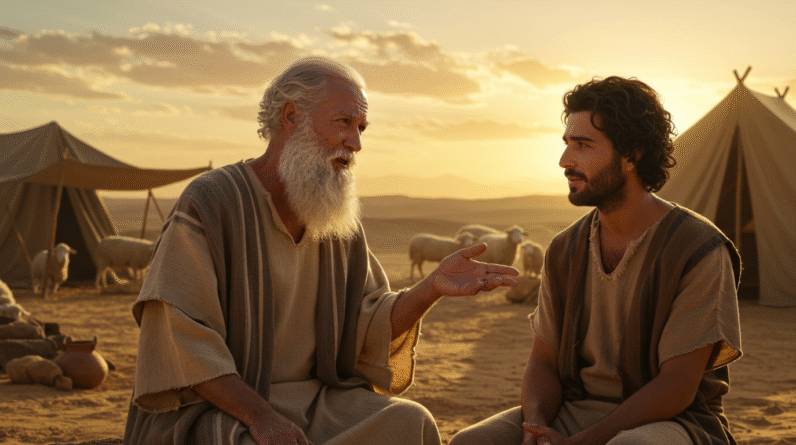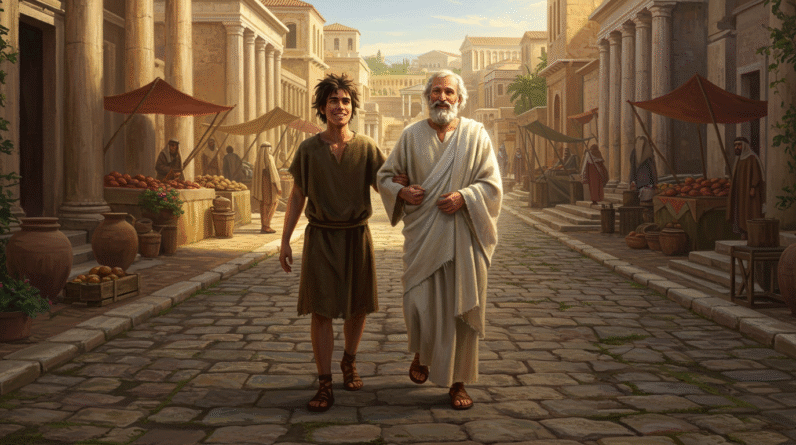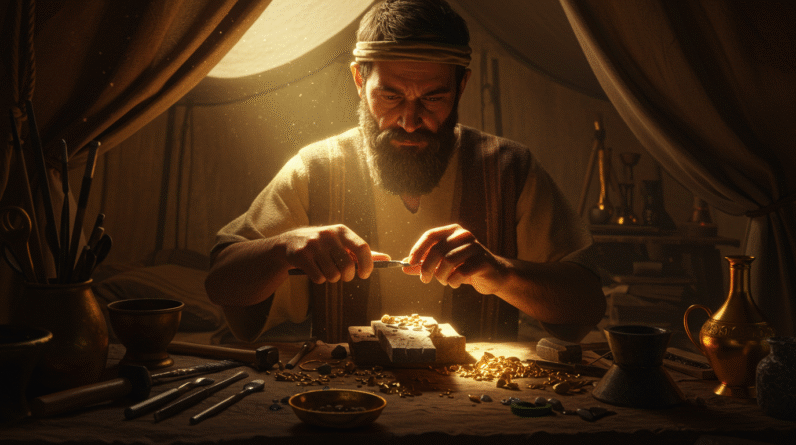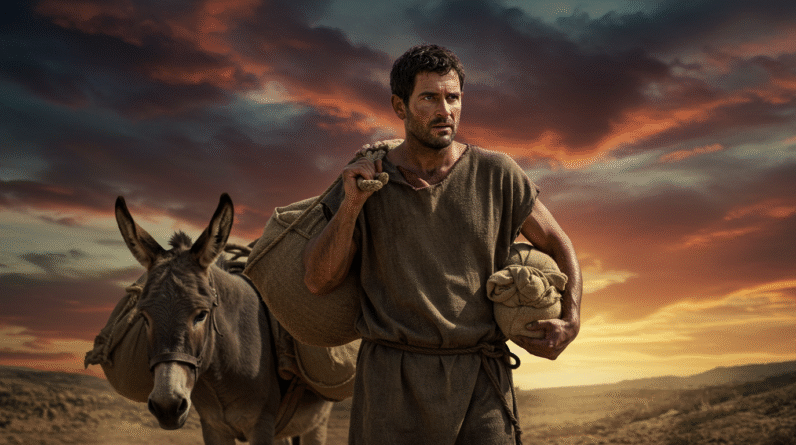Unearth the intriguing yet often overlooked tales of Zillah and Adah in Genesis. Discover their roles, influence, and connections to today’s world in this deep dive.
Exploring the Stories of Zillah and Adah in Genesis
In the heart of Genesis 4:19-23, tucked within the ancient tapestry of early humanity, lie the stories of two often overlooked women: Zillah and Adah. Both hold unique positions in the filling pages of the Bible, part of the lineage that sprang from Cain’s descendants. Despite their brief mentions, their lives and roles offer rich insights into a world being formed, and their stories call to contemporary readers seek meaning and insight from biblical narratives. This exploration will delve into their scriptural accounts, uncover lessons from their lives, and draw connections to the present day.
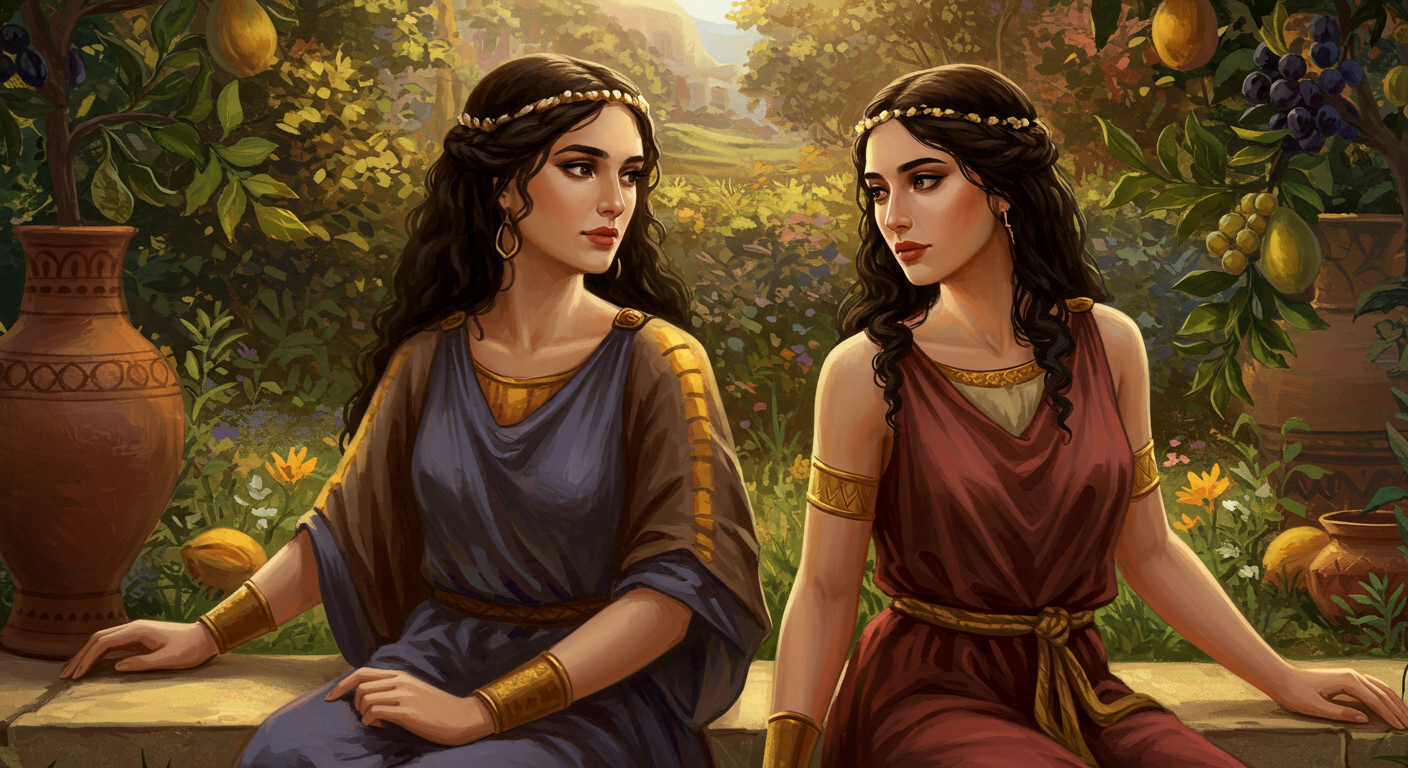
Introduction to Zillah and Adah
Zillah and Adah emerged quietly in the biblical narrative, but their roles in Genesis whisper volumes about the historical context and the unfolding human story. Known primarily as the wives of Lamech, a descendant of Cain, their mention paints them as matriarchs in the first family tree of polygamy. Set against a backdrop of growing human complexity and moral challenges, Zillah and Adah invite us to ponder early female narratives and the intersection of relationship and legacy.
Their Story in the Bible
Adah: The First Wife
Adah takes her place in Genesis by marrying Lamech, and together they become parents to Jabal and Jubal. Jabal is noted as the father of those who live in tents and raise livestock, while Jubal is mentioned as the father of all who play stringed instruments and pipes. In just a few verses, Adah’s legacy unfolds through her sons, introducing human creativity and the diversification of societal roles. Her narrative echoes the universal themes of maternity and the ripple effects of one’s influence.
Zillah: The Second Wife
Beside her stands Zillah, who bears Tubal-Cain, the forger of all tools of bronze and iron. Her role complements and completes the image of a familial setting rich in innovation and development. Zillah also bears a daughter, Naamah. Some texts suggest her inclusion highlights feminine importance even in sparse mentions. Zillah’s legacy is enshrined in the emergence of technology and the progression of human civilization, pushing the boundaries of resourcefulness and adaptation.
The Intrigue of Lamech
Their stories are further complicated by their husband, Lamech. Known for his boastful declaration of violence, Lamech’s speech (Genesis 4:23) presents a chilling precursor to humankind’s growing embrace of vengeance and pride. His wives, amid domesticity, are interlocutors of his famed song where he claims a heightened vengeance surpassing even that of Cain’s. In this dynamic, Zillah and Adah become witnesses to unfolding moral narratives, imbued with complexities that still resonate with readers today.

Lessons from Their Life
The Ripple of Innovation
From Adah and Zillah’s offspring came the birth of significant cultural and technological advancements. Their children marked a departure from primitive living toward refined societal structures that included artistry, music, and metallurgy. Their stories inspire us to value creativity and pioneer spirit, emphasizing that innovation often stems from quiet, humble beginnings.
The Understated Presence of Women
Adah and Zillah’s stories remind us that women’s roles, particularly in historical contexts, are often understated but immensely significant. These stories affirm the impact of women in shaping societies, emphasizing the importance of recognizing and valuing contributions that may not be immediately visible or celebrated.
The Complexity of Familial Dynamics
The life of Lamech and his wives presents a familial structure that is complex and multifaceted. It encourages modern audiences to reflect on how family dynamics, communication, and power can shape personal destinies and moral decisions. Their narrative is a testament to the intricate nature of relationships and serves as a lens through which we can assess our familial interactions.
Connection to Today’s World
In today’s world, characterized by rapid technological advancement and cultural shifts, the story of Adah and Zillah holds profound relevance. They push us to appreciate the peaceful contributors — the unsung shapers of civilization — who propel society forward through creativity and innovation. Similarly, their narrative resonates in the conversation of gender equality, reminding us that the roles of women in technological and cultural spheres must be recognized and honored as pivotal.
Moreover, as families today navigate the challenges of modern living, the complexities seen within the marriage of Lamech to Adah and Zillah highlight timeless struggles and victories experienced within multi-dimensional relationships. Whether grappling with issues of dominance or collaboration, their account offers timeless advice for integrity, transparency, and harmony within family structures.
Key Bible Verse
“Lamech married two women, one named Adah and the other Zillah.” This brief passage anchors the story of Zillah and Adah in Genesis, emphasizing the bold introduction of polygamy into humanity’s story. The verse paints both characters with equal importance, laying the groundwork for their familial and societal contributions. Its significance lies in its straightforward presentation of how human relationships evolve beyond mere necessity and into choices complex with implications.
Thought-Provoking Question
How do you recognize and celebrate the often-overlooked contributions of individuals, especially women, in your own life and community?
Historical/Cultural Context
Exploring the ancient backdrop of Adah and Zillah’s lives, Genesis 4 sets its stage in an era reflecting early human civilization’s rapid transformation. Society was stepping out of nomadic lifestyles while also burgeoning in complexity and violence—arts, crafts, and technologies started to shape daily existence. Within this backdrop, both women represent the shift toward more stable yet complicated domestic and community structures.
Comparison with Other Characters
Adah and Zillah’s story contrasts with other biblical women such as Sarah and Rebekah, whose narratives are filled with explicit divine interactions and prominent ancestry outcomes. This comparison underscores the subtle but significant roles that women played in different societal reiterations throughout biblical history, no less vital in their purpose despite the brevity of their mentions.
Prayer Inspired by Their Story
Heavenly Father, we give thanks for the story of Zillah and Adah, reminders of the transformative power that creativity and strength hold amidst obscurity. Grant us the insight to value the quiet, profound contributions within our communities. May we celebrate diversity in talents and learn to honor each story with gratitude. Amen.
Let these stories of humble beginnings, innovation, and resilience continue to ignite conversation and inspire curiosity.


